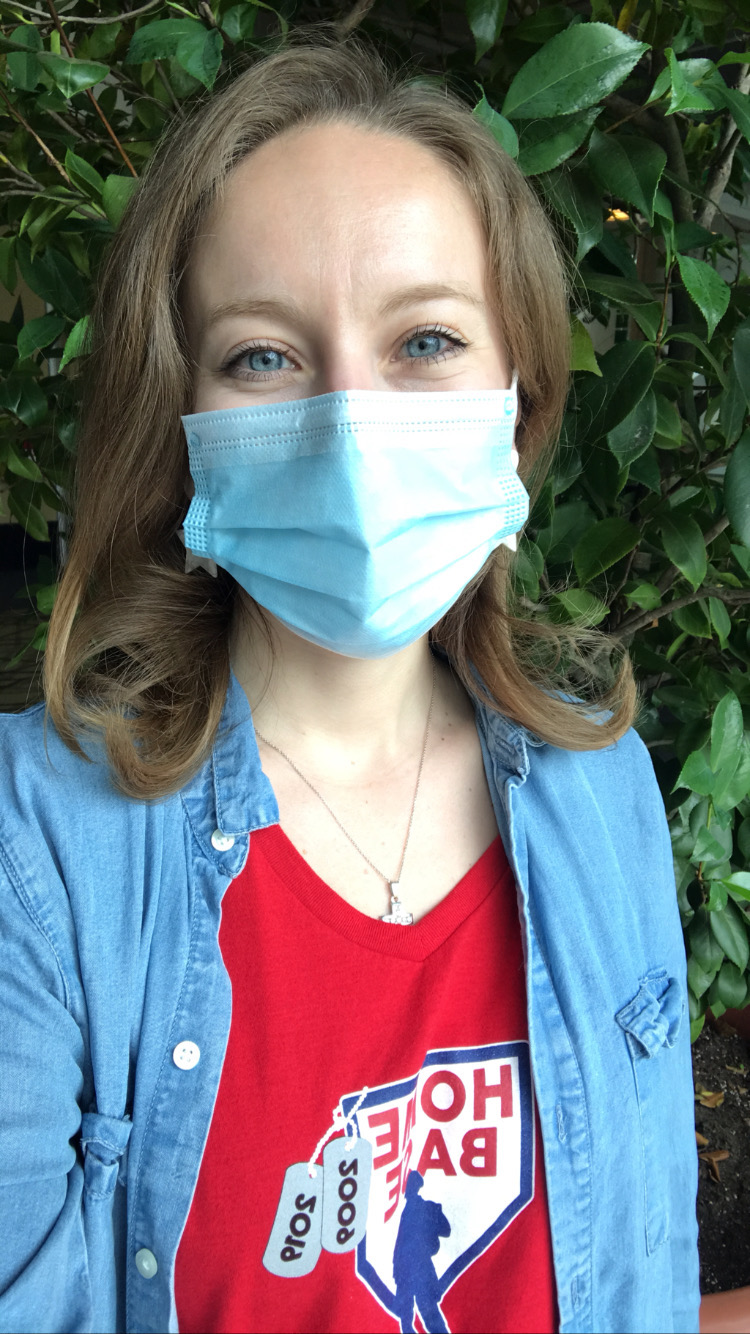Dietitians on the COVID-19 Frontlines: Emily Sanchez (’13) and Nicolette Maggiolo (’15)
WHEN EMILY SANCHEZ (’13) GRADUATED, SHE APPLIED FOR THE US MILITARY–BAYLOR Graduate Program in Nutrition in San Antonio, Tex. Despite having no military background, “I really felt like being an army dietitian, I would never get bored,” says Sanchez, who is now a captain. “I would always be challenged and, every couple of years, have to tackle new problems.”

In late March, after seven years of clinical nutrition and dietetic work at army medical centers in Georgia and Texas—most recently as chief of community and outpatient nutrition at the Brooke Army Medical Center in San Antonio—Sanchez received an assignment that would test her nutrition expertise and military experience in new ways. At the height of COVID-19’s initial spike, she was mobilized to run food service operations at the Javits New York Medical Station, a field hospital built in a convention center in Manhattan, which opened March 31.
Sanchez’s primary focus was ensuring that the hospital received all the supplies and food it needed from outside partners—which included more than 40 collaborating agencies. Sanchez also oversaw a team of dietitians and nutrition care specialists, working to provide healthy meals and nutrition services to all patients.
The hospital served more than 1,000 patients by the time it concluded operations on May 1, with Sanchez and her team distributing more than 15,000 meals. Though her service in New York lasted just five weeks, the community’s support has stuck with Sanchez. She recalls New Yorkers applauding as she and her colleagues returned to their hotel after each 12-hour shift.
“It was a small act of kindness and gratitude,” says Sanchez, “but it meant so much to me and my team, knowing that what we were doing in New York had meaning and affected the people living there every day.”
IT WAS BUSINESS AS USUAL AT THE BOSTON CONVENTION AND EXHIBITION CENTER IN JANUARY 2020: an auto show, an RV and camping expo, trade shows. By early April, its typical run of annual meetings and events had been canceled and the sprawling venue turned into a temporary, 1,000-bed field hospital, Boston Hope. Over the next two months, the hospital would treat hundreds of postacute COVID-19 patients. And it was Nicolette Maggiolo’s job to make sure they all got healthy meals.
From April until June, Maggiolo (’15), a registered dietitian, was the nutrition and food services manager at Boston Hope. She oversaw food service and nutrition counseling for more than 750 patients at the temporary facility, which was built and operated by her employer, HomeBase, a Red Sox Foundation and Massachusetts General Hospital program that provides clinical care and wellness education and support to veterans and their families.

Her role included managing Boston Hope’s clinical nutrition staff, helping patients plan for their transition home, and coordinating with the convention center’s catering company. Working with a nonmedically trained catering company in an untraditional hospital space provided its challenges. But obstacles aside, Maggiolo says the nutritional health of the hospital’s patients was critical to the healing process.
Nothing could fully prepare Maggiolo for such important work, but she was confident her Sargent training would help her rise to the occasion. “I always had such incredible mentors at BU,” Maggiolo says. “They always gave me the confidence that no matter where I landed or whatever role I was asked to take on—even if I wasn’t totally sure I had the résumé or the exact qualifications for it—that I could do it, and that I could do it well.”
Maggiolo called one of those old friends for advice. Emily Sanchez—see above—gave Maggiolo her first tour of Sargent, and Maggiolo credits her as the reason she chose BU.
“To call her and collaborate with her and pick her brain and bounce ideas off of her was so, so helpful for me,” Maggiolo says.
Looking back, Maggiolo recalls her final day on the job. The staff of Boston Hope formed a tunnel outside the convention center to cheer on the final patients as they were discharged.
“That will forever be a part of me,” she says. “I’ll always think back to that tunnel and those patients being wheeled out and making their way home after being treated at Boston Hope. That was a really beautiful day.”
—Jacob Gurvis